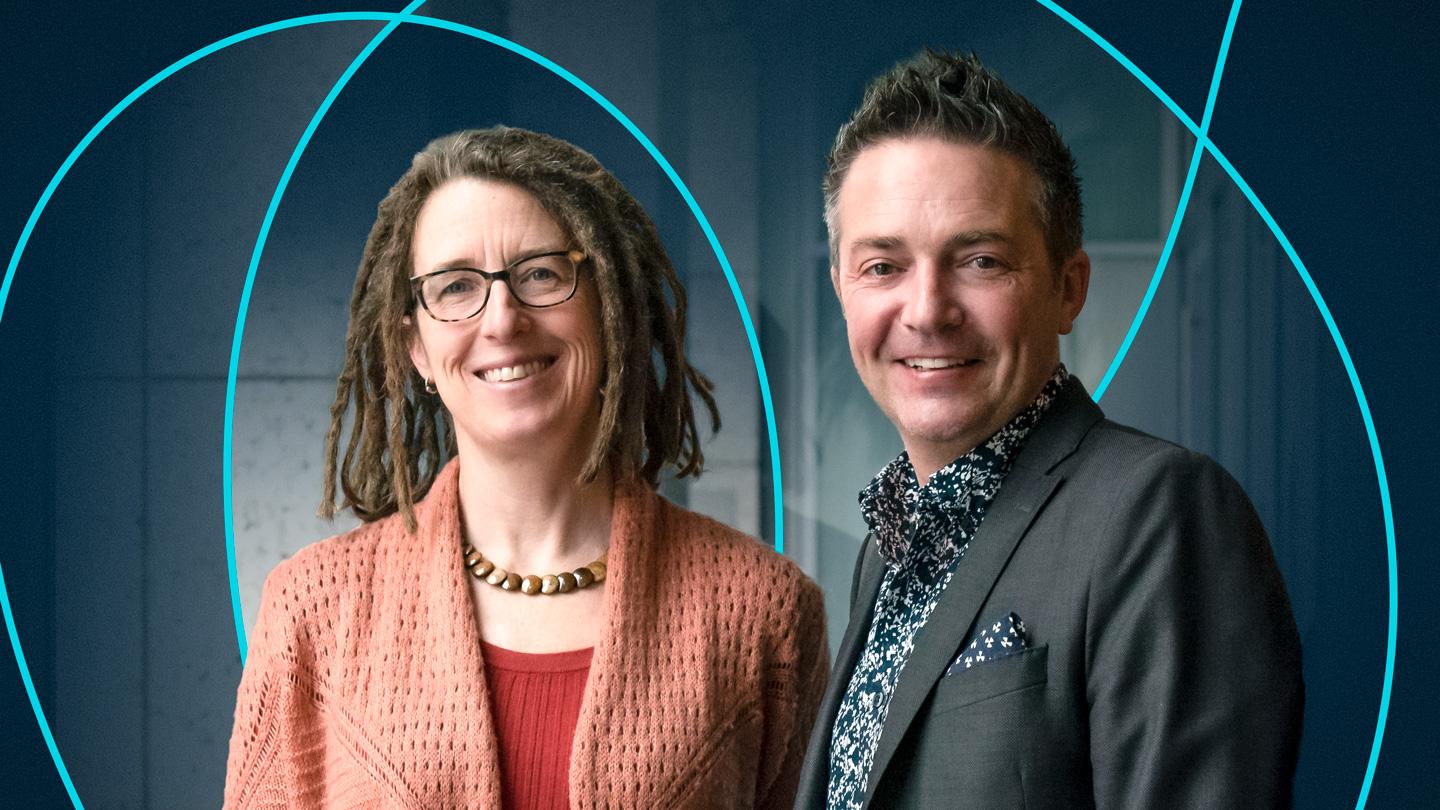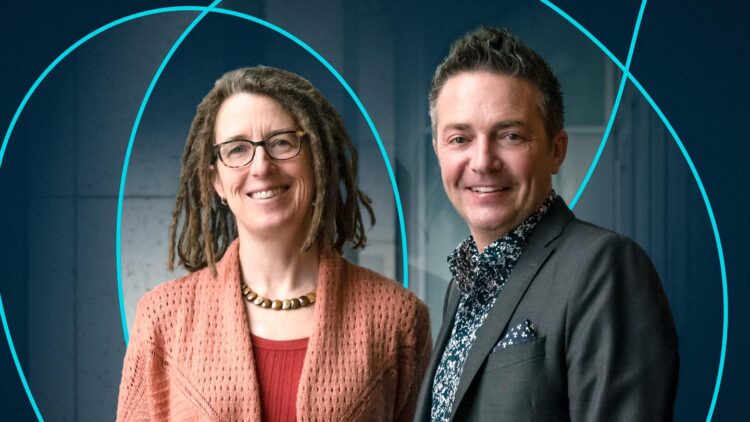Benoit Bruneau and Katie Pollard study DNA folding to identify the genetic causes of congenital heart disease

Credit: Photo: Gladstone Institutes
SAN FRANCISCO, CA–October 15, 2020–The National Institutes of Health (NIH) has granted a 4D Nucleome award to support research by a group of scientists at Gladstone Institutes led by Benoit Bruneau, PhD, and Katie Pollard, PhD. This prestigious award will provide more than $3.6 million over 5 years to study how human DNA is folded up and organized within the nucleus of a cell, both in 3D space and in time, the fourth dimension.
This funding will enable Pollard and Bruneau to launch a deep investigation into mutations that might disrupt DNA folding in the developing heart and thereby cause malformations, known collectively as congenital heart disease, which is the most common form of human birth defects affecting one out of 100 live births worldwide.
“Most children born with congenital heart defects don’t have a precise genetic diagnosis for their disease,” says Pollard, director of the Gladstone Institute of Data Science and Biotechnology. “We hope this work will ultimately provide more families with the comfort of concrete answers and set the stage for new tests and treatments.”
Proper formation of the heart inside a developing fetus requires a precise orchestration of genes switching on and off in sequence. For that to happen, the DNA needs to fold into different configurations. A breakdown in this dynamic folding process could be a major driver of heart defects.
To investigate how such breakdowns might occur, the project will combine Pollard’s expertise in computational biology and machine learning with Bruneau’s deep knowledge of gene regulation and heart development.
One of their major goals is to clarify how DNA folding could be disrupted by previously identified genetic mutations associated with congenital heart disease. Some evidence suggests that these mutated genes cause heart defects by keeping the proteins they encode from carrying out their normal role of regulating genome folding during heart development.
“We want to explore more deeply how these mutated proteins might disrupt the folding process and cause abnormal gene expression,” says Bruneau, director of the Gladstone Institute of Cardiovascular Disease.
To shed new light, the scientists will examine how DNA folds as human stem cells develop into different kinds of heart cells in the lab. These experiments will be performed in both healthy cells and in cells harboring mutations found in congenital heart disease patients, introduced into human stem cells using CRISPR genome editing technology. The resulting data will generate a “4D map” that captures the entire process of genome folding in healthy cells of the developing heart, and reveals how that process is disrupted by disease-associated mutations.
That same data will also fuel another primary goal of the project: to develop a deep-learning computational model that predicts how the genome folds during heart development based on the DNA sequence. By analyzing thousands of patient mutations, the model will be able to predict how those changes to the DNA sequence affect genome folding.
“We already have a great start on this, since my team has previously developed models of genome folding for six other cell types,” says Pollard, who is also a professor of epidemiology and biostatistics at UC San Francisco (UCSF) and an investigator for the Chan Zuckerberg Biohub. “Now, we’ll use the new experimental data to retrain and refine our model for heart cells.”
Using the model, the researchers hope to identify novel mutations that are predicted to cause abnormal folding. Those predictions could then be confirmed in real cells in a lab.
“We suspect that, in addition to protein-coding mutations, another culprit could be alterations in stretches of DNA that do not code for proteins, but are still important for genome folding,” says Bruneau, who is also a professor in the Department of Pediatrics at UCSF. “If our suspicions are correct, the new model should identify such mutations.”
A portion of the funding from the 4D Nucleome award will support the computationally intensive process of training the new model, which would be prohibitively expensive for many labs. In line with the open-science spirit of the 4D Nucleome program, the model will be made publicly available for other researchers to use with their own data.
“We congratulate Katie and Benoit for receiving this important award,” says Gladstone President Deepak Srivastava, MD, who is a pediatric cardiologist and works closely with them to study additional facets of genome folding and congenital heart disease. “This funding will drive new insights into what causes heart defects, helping families and providing valuable tools for future research.”
###
About the Award
Part of the NIH Common Fund, the 4D Nucleome program brings together a wide breadth of scientists with the shared goal of understanding the function and importance of the three-dimensional organization of the cell nucleus in space and time, and its impact on human disease.
The research at Gladstone funded by this NIH award (U01-HL-157989) will mainly be conducted by Geoff Fudenberg, a bioinformatics fellow in the Pollard Lab, and Irfan Kathiriya, visiting scientist in the Bruneau Lab and associate professor of anesthesiology at UCSF.
Close collaborators of Bruneau and Pollard at UCSF were also awarded 4D Nucleome awards, including a team led by Yin Shen and Arnold Kriegstein, as well as a group led by Bo Huang, Geeta Narlikar, and Xiaokun Shu.
About Gladstone Institutes
To ensure our work does the greatest good, Gladstone Institutes focuses on conditions with profound medical, economic, and social impact–unsolved diseases. Gladstone is an independent, nonprofit life science research organization that uses visionary science and technology to overcome disease. It has an academic affiliation with UC San Francisco.
Media Contact
Julie Langelier
[email protected]
Original Source
https:/





